I am trying to change the required engine version of an AppPackage that I have posted using v2 of the Design Automation API.
I've tried using Postman and the Forge Node Client. I'm using the Forge documentation as a reference.
https://forge.autodesk.com/en/docs/design-automation/v2/reference/http/AppPackages(':id')-PATCH/
My credentials are correct and I have a valid token, but for some reason I keep getting a 404 Not Found status and an error that says "AppPackage with the name MyPlugin doesn't belong to you. You cannot operate on AppPackage you do not own." Also, I get the same message when I try to delete or update the AppPackage.
That's really weird because I definitely own this AppPackage. I uploaded it with these same credentials and I can view it by doing a GET request to view all of my AppPackages. Furthermore, the name of the AppPackage is correct and I specified the right scope (code:all) when I authenticated.
Why does Design Automation think this AppPackage doesn't belong to me and why can't I patch, update, or delete it?
UPDATE 3/28/2019: Setting the resource value still results in the same error
UPDATE 4/2/2019: Getting a fresh upload URL doesn't work either. I get an internal server error saying "Object reference not set to an instance of an object."
const ForgeSDK = require('forge-apis');
const oAuth2TwoLegged = new ForgeSDK.AuthClientTwoLegged(FORGE_CLIENT_ID, FORGE_CLIENT_SECRET, SCOPES);
const appPackageApi = new ForgeSDK.AppPackagesApi();
const getToken = () => {
return oAuth2TwoLegged.authenticate();
};
const getUploadURL = () => {
return appPackageApi.getUploadUrl(oAuth2TwoLegged, oAuth2TwoLegged.getCredentials());
};
const patchPackage = (id, url) => {
const appPack = {
Resource: url,
RequiredEngineVersion: APP_PACKAGE_REQUIRED_ENGINE
};
return appPackageApi.patchAppPackage(id, appPack, oAuth2TwoLegged, oAuth2TwoLegged.getCredentials());
};
(async () => {
try {
const token = await getToken();
const url = await getUploadURL();
const patchPackRes = await patchPackage(APP_PACKAGE_ID, url);
if (patchPackRes.statusCode == 201)
console.log('Patch package succeeded!');
else
console.log('Patch package failed!' + patchPackRes.statusCode);
} catch (ex) {
console.log('Exception :(');
console.log(ex);
}
})();

